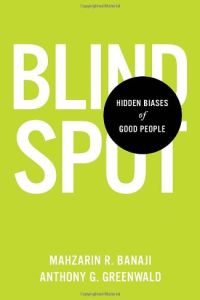
A review of
Blindspot
Hidden Biases of Good People
The review below was first published in the getAbstract Journal on Apr 26, 2022.
We’ve reviewed this title for you as we currently cannot offer a summary.
We’ve reviewed this title for you as we currently cannot offer a summary.
You May Not Think What You Think You Think
by David Meyer
Psychology professors Mahzarin R. Banaji and Anthony G. Greenwald explore the labyrinthian path our irrational beliefs follow – or don't.
By the same authors
Report

















Comment on this review